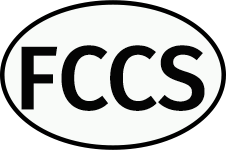This is an article I wrote which appeared in the
April 2017 edition of The St. Augustine Beaches News Journal & The Saint Augustine news Journal.
Here in St Augustine, Spring is not as noticeable as many of us are used to. The seasonal time-clock doesn’t chime as loudly here. Maybe when we think of Spring Cleaning, we don’t think about our computer, or what should be done to help it serve us, well into the future.
There are several things that need routine attention. The Hardware, (the computer’s physical parts), the Software (the operating system, and the applications that you use), and Security are the ones we’ll look at here.
Most people only consider maintenance on their computers when something is not working correctly. Regular maintenance is just as important to your computer as oil changes are to your car, or air filters for your A/C.
The Hardware:
One of the great killers of computers is Heat. All computers have fans that keep the air moving inside of it. The movement of air is diminished with buildup of dust, cat or dog hair, and creates danger of overheating.
Laptops are less likely to have buildup of “dust-bunnies” because they are not tucked away under a desk and out of sight. Desktop computers need to be pulled out and inspected for clean vents front and back. This will also give you a chance to vacuum the area it has been sitting in as well.
At least once every other year the inside of the computer case should be inspected and have all of the dust and buildup blown out. This might be a bit intimidating for the non-technical, and is generally left to the professionals. But it’s normally only two screws to slide the case open. You might be surprised just how much buildup we find on the CPU cooling fan parts.
In many cases, older machines can be dramatically improved by investing in a few new parts. I have turned many sluggish older computers into speedsters by simply swapping out a few parts for newer faster ones.
The price on Solid State Drives (SSDs) has dropped so much over the past year that this is now a truly inexpensive way to increase the speed of your computer. SSDs are 10X faster, and not only boot faster, they are more reliable than the hard drive typically shipped in computers. Customers are always amazed at how fast their “older” computer is after upgrading to a Solid State Drive.
Most consumer computers are sold with the bare minimum of RAM required for the Operating System to run. This means that any software you add after the purchase has very little memory to use. Increasing how much memory your computer has will also dramatically improve your experience.
The Software:
All computers have an Operating System (OS), be it Windows or Mac. Running OS updates should be done regularly, but it’s a good idea to check on the status of the OS updates when you are doing maintenance.
On Windows machines, use “Windows Update” and run an Update search. On a Mac, click the Apple Logo at the top Left of the screen, and select “About This Mac”. You’ll see a “Software Update…” button.
Applications, or Software that you use regularly should have the latest patches and updates that are available. Your Browser needs to be as updated as often as updates are available. Many clients tell me that they are afraid to click OK when an application like Chrome, Internet Explorer, Firefox asks them to upgrade. It is important to pay very close attention to any request that pops up in Chrome, Internet Explorer, or Firefox. In order to avoid any issues, check for updates by using the “Help” menu and look for “Check for Updates”.
As our computers age we find that they begin to get sluggish, and sometimes downright lethargic. Often this is due to all the “stuff” we’ve installed. It’s a great idea to review all the software installed and uninstall the ones we no longer use.
Windows machines show this list in “Programs and Features”. You can view all the Software that has been installed and use this to uninstall any that are no longer needed. On a Mac, just go to the “Applications” folder and move any applications that are no longer needed to the trash.
The Security:
Of all the software that drags our computers to a halt, free Anti-Virus software is the worst. It is imperative that you have good virus protection, and I understand the desire to not spend too much to be protected. However, the free ones are costly in just how much they slow down your computer. The Worst of them install all sorts of other things that get in the way as well.
In my opinion, the best Anti-Virus software you can buy is BitDefender. Their Total Security Package is serious protection, and it does not slow your computer down. BitDefender leads the field in pre-emptive protection from Ransomware.
Conclusion:
Think about the hours you spend on your computer. Then consider how dramatic it would be to have it fail. The advice above could very well prevent a failure, as well as speed up your computer’s performance.
The bottom line is that your computer needs a little TLC. Setting aside a couple hours to show it a little love might just save its life.

